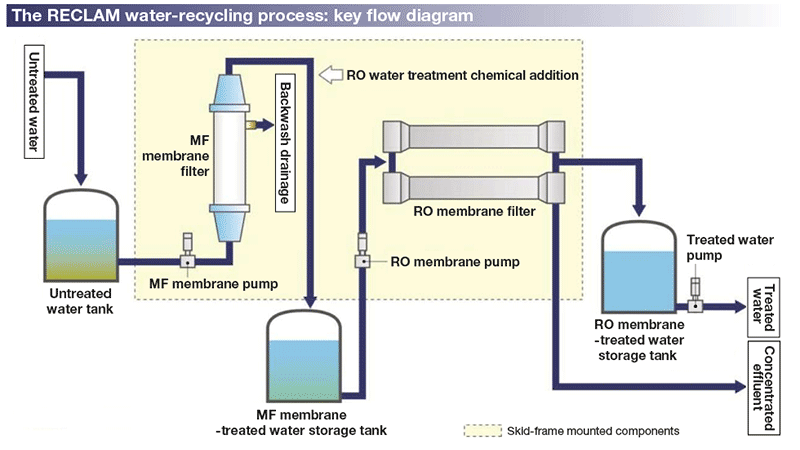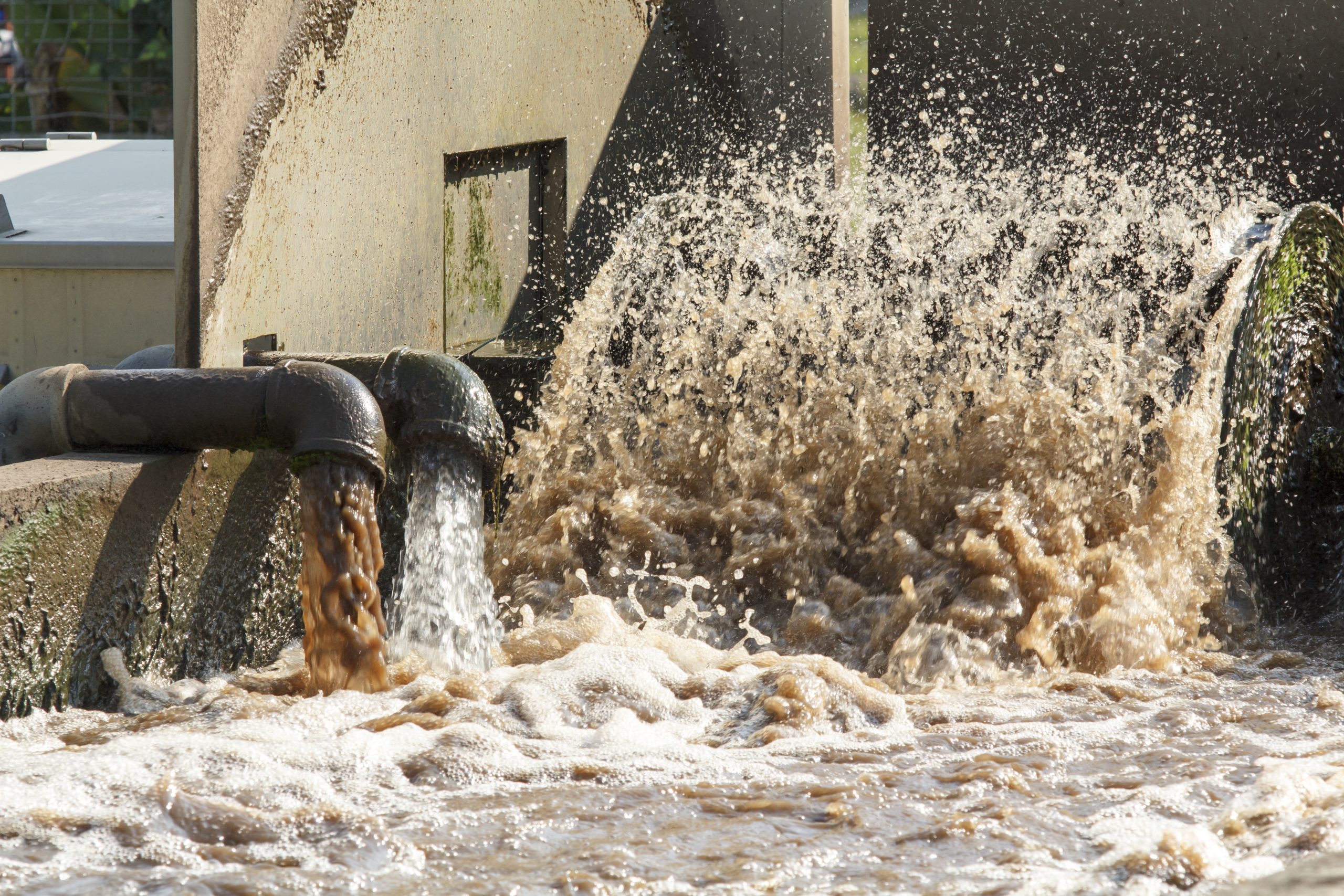Industrial Waste Water Treatment-- Customized Solutions for Effective Wastewater Treatment
Industrial Waste Water Treatment-- Customized Solutions for Effective Wastewater Treatment
Blog Article
Advancements and Advancements in Hazardous Waste Water Treatment Technologies
The landscape of industrial wastewater treatment is undergoing a transformative shift, driven by developments that improve both effectiveness and sustainability. As regulative requirements progress, the combination of AI and maker discovering right into wastewater monitoring systems guarantees to make sure and enhance operations compliance.
Summary of Waste Water Treatment Technologies
Wastewater therapy modern technologies incorporate a variety of techniques developed to remove contaminants from commercial effluents prior to their release into the setting. These modern technologies are important for preserving ecological balance and making certain conformity with environmental laws. The primary categories of wastewater therapy include physical, chemical, and biological approaches, each offering distinct objectives based upon the nature of the contaminants existing.

Biological treatment techniques use microorganisms to deteriorate raw material, making them particularly effective for organic-rich effluents. Methods like triggered sludge and biofilm activators harness the all-natural degradation abilities of microorganisms, bring about significant reductions in biochemical oxygen demand (BODY)
Advanced Filtering Methods
Advanced purification strategies stand for a crucial development in the realm of industrial wastewater treatment, improving the effectiveness of pollutant removal processes. Industrial Waste Water Treatment. These methods encompass a range of technologies, including microfiltration, ultrafiltration, nanofiltration, and reverse osmosis, which provide sequential barriers for numerous fragment dimensions and chemical frameworks
Microfiltration and ultrafiltration use membrane layer systems to eliminate suspended solids, bacteria, and larger natural particles, enhancing the high quality of effluent prior to additional treatment. Nanofiltration bridges the void in between ultrafiltration and turn around osmosis, efficiently eliminating natural substances and divalent ions, therefore decreasing the load on downstream procedures.
Reverse osmosis supplies the highest degree of purification by permitting just water and little molecules to pass through its semi-permeable membrane layers, making it suitable for recovering premium water from industrial effluents. Current improvements in membrane technology, consisting of the advancement of more sturdy and fouling-resistant materials, have actually substantially improved functional effectiveness and reduced prices.
Integrating these innovative filtering techniques not just enhances the total treatment procedure however also adds to sustainability efforts by making it possible for water reuse and source recovery in commercial settings. (Industrial Waste Water Treatment)
Organic Treatment Technologies

Furthermore, the growth of crafted biological systems, such as membrane bioreactors (MBRs), combines organic therapy with advanced membrane layer filtering. This integration permits for higher effluent quality and minimized footprint, making it ideal for space-constrained industrial centers. Developments in genetically crafted bacteria have likewise emerged, improving the biodegradation of particular impurities, such as pharmaceuticals and hefty metals, that are commonly challenging to get rid of.
Furthermore, the implementation of bioaugmentation approaches, where useful microbes are introduced to boost the existing biological therapy processes, has revealed promising outcomes in improving treatment efficiency. These developments jointly signify a pattern in the direction of more sustainable and reliable organic therapy approaches that can adjust to the developing complexities of industrial wastewater streams. As industries continue to focus on environmental conformity, these biological advancements will play a crucial duty in wastewater management.

Resource Recovery Approaches
In commercial settings, the assimilation of resource healing techniques has come to be increasingly vital for improving sustainability and reducing waste. These approaches focus on extracting useful materials and power from wastewater streams, thereby changing possible contaminants right into reusable sources.
One popular strategy is nutrition recuperation, where nitrogen and phosphorus, typically existing in excess in wastewater, are recorded and converted into plant foods. This not only lowers environmental effects but likewise gives a circular economic situation service for farming applications. Additionally, innovations such as straight from the source anaerobic food digestion enable the conversion of organic waste right into biogas, a renewable power resource that can offset fossil fuel usage in commercial operations.
Moreover, progressed filtration and membrane innovations promote the recovery of industrial spin-offs such as metals and salts. These recouped products can be rehabilitated into production processes, minimizing the demand for virgin sources.
Future Fads in Waste Water Management
As markets progressively focus on sustainability, the future of wastewater monitoring is established to undergo significant changes. Technological improvements, such as man-made knowledge and artificial intelligence, will enable more efficient monitoring and management of wastewater systems. These technologies can anticipate upkeep requirements, enhance therapy processes, and enhance decision-making, ultimately decreasing operational costs and ecological influence.
In addition, the assimilation of circular economic climate concepts will certainly play an important role in wastewater management. Industries are anticipated to change in the direction of systems that not only treat wastewater yet additionally recuperate important resources, such as nutrients, water, and power. This change will minimize waste and advertise the reuse of products, aligning with global sustainability objectives.
Emerging treatment strategies, such as membrane bioreactors and advanced oxidation procedures, will further Read Full Article boost the efficiency of wastewater therapy, permitting better effluents appropriate for reuse. Additionally, regulatory structures are likely to Website advance, highlighting stricter criteria for wastewater discharge and encouraging sectors to embrace cutting-edge therapy options.
Conclusion
To conclude, the development of commercial wastewater treatment technologies shows a significant change towards improved efficiency and sustainability. Advancements in advanced filtering techniques, biological treatments, and source recuperation approaches highlight the sector's dedication to environmental stewardship. The assimilation of synthetic knowledge and device understanding even more maximizes these processes, guaranteeing governing compliance and promoting a round economy. Continued innovations in these locations will play an important duty fit the future of wastewater administration and shielding vital water resources.
The landscape of commercial wastewater therapy is undergoing a transformative shift, driven by innovations that enhance both efficiency and sustainability.Wastewater treatment innovations include an array of approaches designed to remove contaminants from industrial effluents prior to their release right into the setting.Using the power of organic procedures has actually led to considerable advancements in the treatment of industrial wastewater.Furthermore, the implementation of bioaugmentation techniques, where useful microorganisms are introduced to enhance the existing organic therapy processes, has shown encouraging outcomes in enhancing treatment performance. These innovations collectively indicate a fad in the direction of more effective and sustainable biological therapy approaches that can adjust to the advancing intricacies of industrial wastewater streams.
Report this page